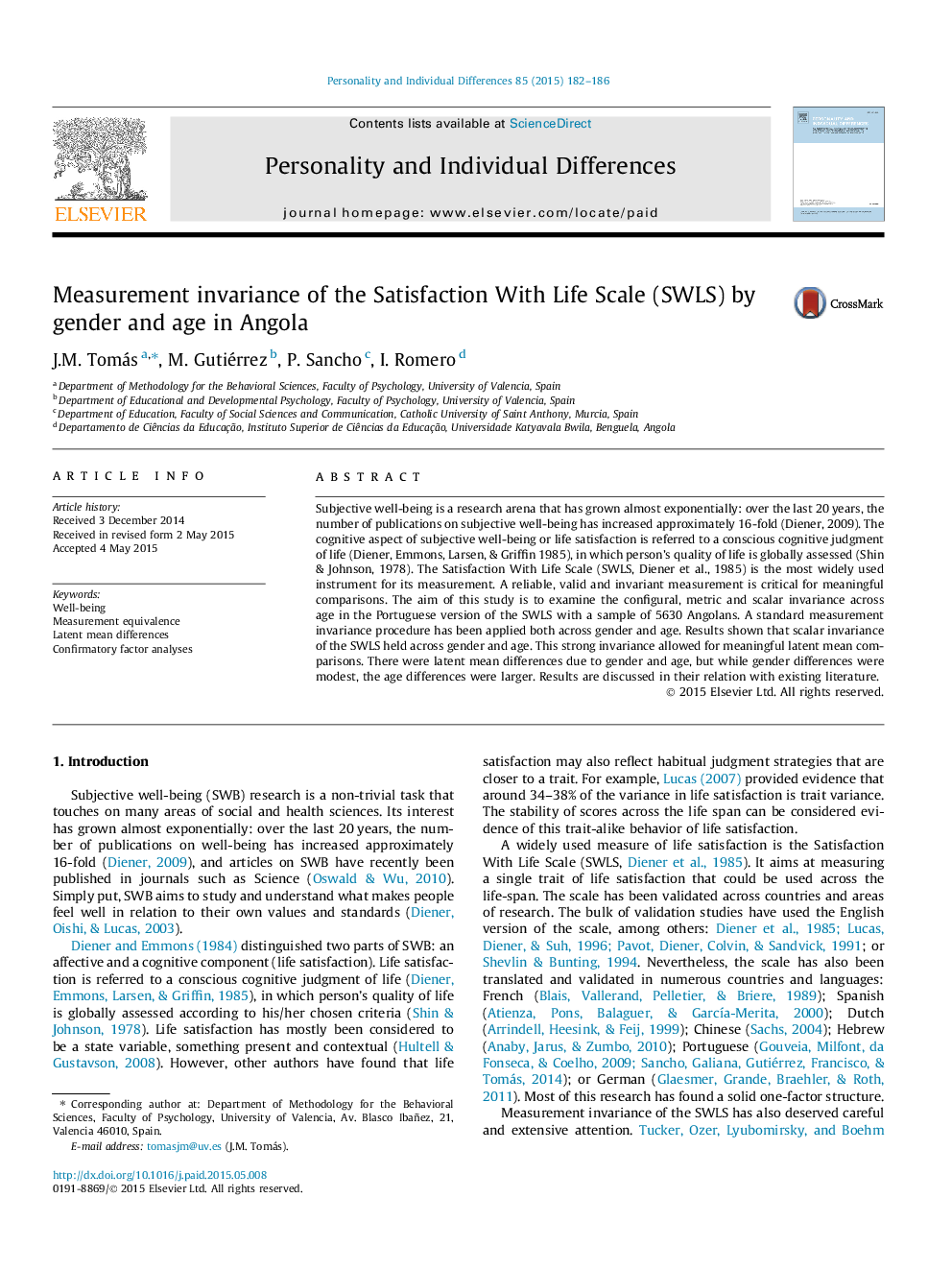| Article ID | Journal | Published Year | Pages | File Type |
|---|---|---|---|---|
| 7251308 | Personality and Individual Differences | 2015 | 5 Pages |
Abstract
Subjective well-being is a research arena that has grown almost exponentially: over the last 20Â years, the number of publications on subjective well-being has increased approximately 16-fold (Diener, 2009). The cognitive aspect of subjective well-being or life satisfaction is referred to a conscious cognitive judgment of life (Diener, Emmons, Larsen, & Griffin 1985), in which person's quality of life is globally assessed (Shin & Johnson, 1978). The Satisfaction With Life Scale (SWLS, Diener et al., 1985) is the most widely used instrument for its measurement. A reliable, valid and invariant measurement is critical for meaningful comparisons. The aim of this study is to examine the configural, metric and scalar invariance across age in the Portuguese version of the SWLS with a sample of 5630 Angolans. A standard measurement invariance procedure has been applied both across gender and age. Results shown that scalar invariance of the SWLS held across gender and age. This strong invariance allowed for meaningful latent mean comparisons. There were latent mean differences due to gender and age, but while gender differences were modest, the age differences were larger. Results are discussed in their relation with existing literature.
Related Topics
Life Sciences
Neuroscience
Behavioral Neuroscience
Authors
J.M. Tomás, M. Gutiérrez, P. Sancho, I. Romero,
